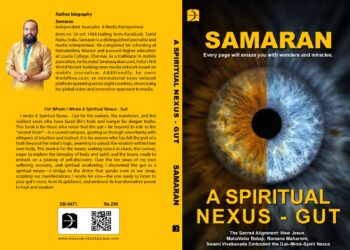June 30, 2025 – Nikhil Kamath, co-founder of India’s leading brokerage firm Zerodha, has sparked a global conversation about the future of work, warning that traditional four-year college degrees are becoming outdated. Citing the World Economic Forum’s (WEF) Future of Jobs Report 2025, Kamath emphasized that lifelong learning is the critical skill needed to stay relevant in a rapidly changing job market driven by artificial intelligence (AI) and automation.
In a recent post on X, Kamath stated, “The days of 4-year college courses are over. Lifelong learning is the new norm, for everyone.” His message highlights a seismic shift in the global workforce, where technology is expected to reshape industries by 2030. According to the WEF report, 92 million jobs will be displaced by automation, while 170 million new roles will emerge, creating a net gain of 78 million jobs. However, only those who continuously adapt and upskill will benefit.
A Changing Job Landscape
The WEF report projects that by 2030, technology will handle 34% of workplace tasks, up from 22% today, while purely human tasks will drop to 33%. Jobs in agriculture, technology, and the gig economy—such as farmworkers, software developers, and delivery drivers—are expected to see significant growth. Meanwhile, routine roles like cashiers, clerks, and secretaries face steep declines due to automation.
Kamath’s warning underscores the need for workers to pivot toward dynamic, tech-driven careers. The report identifies key skills for 2030, including AI, big data, cybersecurity, analytical thinking, creative problem-solving, and environmental stewardship. Alarmingly, 39% of current core skills may become obsolete, with India facing a 38% skill obsolescence rate—one of the highest globally.
Lifelong Learning: The New Essential
Kamath’s core message is clear: adaptability through continuous learning is non-negotiable. “You can’t rely on what you learned a decade ago,” he said, urging professionals and students to embrace ongoing education to keep pace with technological advancements. The WEF report supports this, noting that 77% of companies plan to retrain staff, and 69% aim to hire AI-skilled workers, yet 41% of workers may receive no upskilling, risking obsolescence.
This shift also challenges traditional education models. Kamath argues that static degrees no longer guarantee career stability, as industries demand flexible, future-ready skills. Analytical thinking is the top skill employers seek, with 70% of companies prioritizing it in 2025, followed by resilience, agility, and leadership.
A Wake-Up Call for Workers
Kamath’s insights have resonated globally, particularly among younger audiences, as he questions the value of conventional education in an AI-driven world. The WEF report highlights that while job growth is expected, the benefits will favor those who adapt quickly. In India, 95% of employers are prioritizing diversity, equity, and inclusion (DEI), focusing on women, people with disabilities, and Gen Z, signaling a broader transformation in hiring practices.
As automation accelerates, Kamath’s call to action is a reminder: the future belongs to those who evolve. “Adaptability is crucial,” he said, emphasizing that lifelong learning is not just a skill but a mindset for surviving and thriving in the next decade’s labor market.
Sources: World Economic Forum’s Future of Jobs Report 2025.







































